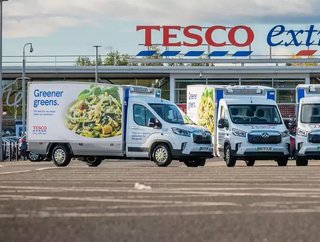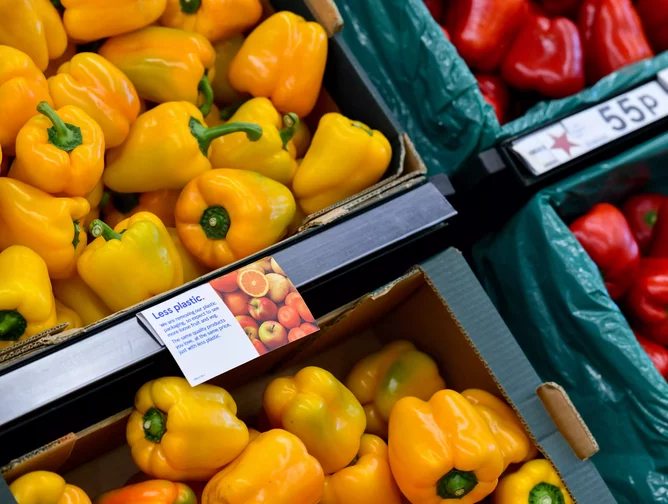Tesco adopts sustainable transport for Glasgow operations

Glasgow has been the centre for all things sustainability over the past two weeks, therefore, it seems fitting for Tesco to announce its latest Glasgow-based initiative that will drive the company towards net-zero. Knowing that the UK produces 19 million tonnes of carbon emissions from transporting food, Tesco has shown its commitment to using less harmful means of transportation.
Earlier this year, Tesco released information on a major logistical change that saw the company switch to rail transport for its deliveries from Spain. The leading UK supermarket chain has identified this as a more sustainable method of transport that does not comprise on delivery times—compared to deliveries by lorry. The rail service has proven to be successful in reducing carbon emissions by 76% compared to road transport.
Championing electric vehicle grocery deliveries
Tesco has now addressed the emissions from its deliveries to consumers, with its latest electric vehicle adoption. Tesco customers in Glasgow will now receive their goods from one of the 17 all-electric delivery vans that are now operational. The adoption of EVs will decarbonise its delivery network in the city, which is currently servicing over 3,700 deliveries a week, totalling 8,000 miles. The company is now looking towards further applications to meet its target of 100% emissions-free delivery by 2028.
Tesco UK’s Return on Investment Chief Executive Officer, Jason Tarry explains how this step is critical for meeting its company-wide goal of net-zero by 2035. ‘In this critical decade for climate action, businesses must play a key role in driving transformational change’, says Tarry.
‘As part of our efforts to secure a COP26 legacy for Glasgow, I’m delighted that Glasgow will be the first Scottish city to transition to an all-electric Tesco home delivery fleet. We’re also increasing our use of rail distribution to take more emissions off our roads and helping boost UK’s renewable energy capacity by investing in renewable energy infrastructure, including nine new wind and solar farms across Scotland and throughout the UK’.

Beyond this initiative, Tesco has also committed to an overall vehicle transition, by commissioning the installation of EV charging stations with the aim of providing 2,400 charging points across 600 Tesco stores—including 72 stores in Scotland.
Minister for Transport Graeme Dey says that everyone, including individuals and businesses, has a role to play to slow the rate of climate change. ‘Government, individuals and businesses all have a role to play when it comes to taking climate action. This is a welcome step from Tesco, looking to secure a lasting legacy from COP26, and good news for customers in Glasgow, where over 3,700 deliveries a week will now be completed using zero-emission vehicles – helping to protect our climate and improve air quality’.
‘This is just the beginning of action taken by Tesco and it is encouraging that the company is expanding the use of rail freight for the movement of fresh produce, investing in renewable energy infrastructure and decarbonising its entire home delivery fleet by 2028’.
For more sustainability insights, check out the latest issue of Sustainability Magazine.






